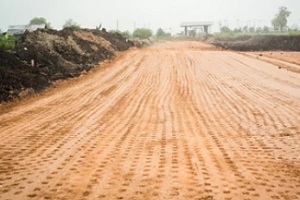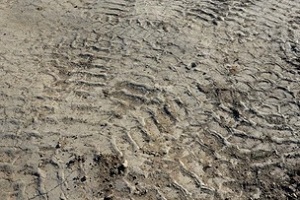 Soil is the surface of nearly every construction project. Naturally present, abundant, and sturdy when prepared properly, soil makes a great base for buildings, roads and other projects. However, soil must be compacted prior to construction to provide the stability needed to support whatever is built above it. Here is a look at the many benefits of soil compaction as well as a few situations where soil compaction can be negative.
Soil is the surface of nearly every construction project. Naturally present, abundant, and sturdy when prepared properly, soil makes a great base for buildings, roads and other projects. However, soil must be compacted prior to construction to provide the stability needed to support whatever is built above it. Here is a look at the many benefits of soil compaction as well as a few situations where soil compaction can be negative.
What Is Soil Compaction?
Anyone who has ever spent time playing outdoors as a child or gardening as an adult will already be familiar with the ever-changing nature of soil. When digging up a hole from any type of soil, dirt that started out flat tends to become more aerated and crumblier. Building anything on top of that disturbed dirt pile would be a risky proposition because it is not very solid. However, if the soil was firmly packed together, it would be far more stable; this is what soil compaction aims to achieve.
Soil compaction is a fundamental aspect of soil engineering, also known as geotechnical engineering, as well as construction. It involves densifying loose soil, which also has the effect of increasing its weight. It is achieved by reducing the pore space in the soil by removing the voids that are normally found between particles of soil. Pressure is typically combined with weight to collapse the air pockets found between the components of the soil.
There are many types of equipment that can be used to compact soil, and the right choice will depend on the amount of soil that is being compacted as well as the properties of the soil. Non-cohesive soils can be compacted using vibratory smooth drum rollers, while cohesive soils are often compacted with padfoot compactors. Soil compaction is usually stated in a percentage, with 95% being a common threshold to ensure construction projects have a solid base.
The Benefits Of Soil Compaction
The main benefit of compacting soil is that it provides the flat base needed to support whatever is constructed on top of it, such as buildings, roads, pavements and foundations. Soil is often disturbed by the processes used in construction, such as excavating, grading and trenching. All of these processes can introduce water to the soil mass. Compaction is essential for removing these water particles and air voids so that structures will have proper support.
If soil is not compacted enough prior to construction, the structure built there runs the risk of collapsing over time. Failing to remove air between the soil particles prior to construction could cause the soil to move unexpectedly in the future, allowing water to penetrate beneath the building and putting the entire structure at risk.
 Another important benefit of soil compaction is its ability to increase the load-bearing capacity of the ground. Buildings, foundations and other structures need to be placed on top of soil that has the capacity to support it without settling excessively, and compacting soil allows it to support a higher weight.
Another important benefit of soil compaction is its ability to increase the load-bearing capacity of the ground. Buildings, foundations and other structures need to be placed on top of soil that has the capacity to support it without settling excessively, and compacting soil allows it to support a higher weight.
Soil compaction also has many benefits when it comes to road construction. First, plants are unable to grow in compacted soil, which is important because plant roots can break soil apart, causing it to become less stable for the roads built on top of it. Moreover, compacted soil is difficult to wet and requires a lot of water to destabilize. Compacting soil before laying asphalt or concrete roads enables the roads to last longer, and it can also help to form the road’s shape in a way that allows it to shed water. It is also useful for gravel roads as it provides a more reliable base for their small stones.
Failing to compact soil before building a road on it could later result in unwanted movement that allows water to get beneath the road. This can cause any pipes beneath it to crack or leak. It can also cause the road to develop holes and become dangerous.
The Drawbacks Of Soil Compaction
With so many potential benefits associated with soil compaction, it is difficult to imagine that there are scenarios in which soil compaction could be a disadvantage. Although soil compaction is rarely negative for parts of land where buildings will be constructed, there are several reasons that soil compaction can be a drawback in areas of a construction project that will be devoted to gardening.
The smaller size of the void spaces in between the individual grains of compacted soil stop water from infiltrating into the soil mass. This can result in greater water runoff as well as increased soil erosion.
Another drawback of compacting soil on a construction site where a garden will be planted is its potential to inhibit plant growth. When the soil in a garden bed is too compacted, the plants will be unable to access the water, nutrients and oxygen they need to bring in from the soil and into their roots. Particles of soil that are pressed together too tightly will not have the small pockets of air plants need to thrive.
Moreover, when roots are unable to move vertically through the soil because of compaction, they will typically start to grow horizontally. This results in a shallower root system that can negatively impact nearby plants and trees. Seedlings that are planted in compacted soil may have difficulty growing up through the soil to reach the sunlight they need for survival. Soil compaction can also destroy beneficial fungus that plants rely on.
 Other drawbacks of soil compaction can be seen when the process is not carried out properly. Over-compaction can be dangerous because it causes soil to break down, which makes it weaker. Under-compaction can be just as problematic. This can occur when the equipment used for the job is not adequate or the operator fails to make a sufficient number of passes using the compactor. Under-compaction can result in uneven settlement. It compromises the soil’s ability to bear the weight of the structure, which can result in serious structural issues.
Other drawbacks of soil compaction can be seen when the process is not carried out properly. Over-compaction can be dangerous because it causes soil to break down, which makes it weaker. Under-compaction can be just as problematic. This can occur when the equipment used for the job is not adequate or the operator fails to make a sufficient number of passes using the compactor. Under-compaction can result in uneven settlement. It compromises the soil’s ability to bear the weight of the structure, which can result in serious structural issues.
Reach Out To The Northern Virginia Construction Professionals
To learn more about soil compaction, talk to the construction professionals at Dirt Connections. Our team offers commercial and residential remodeling and construction services in the Northern Virginia area. We can supply a broad range of soil types and carry out excavation, demolition and compaction work.
Summary

Dirt Connections was started with one goal in mind: providing quality residential and commercial construction services to clients on time and on budget. Reach out for more information on how we can support your next project.
For your convenience our estimates are free and by appointment. Call 703-940-9949 for a free estimate today!









































